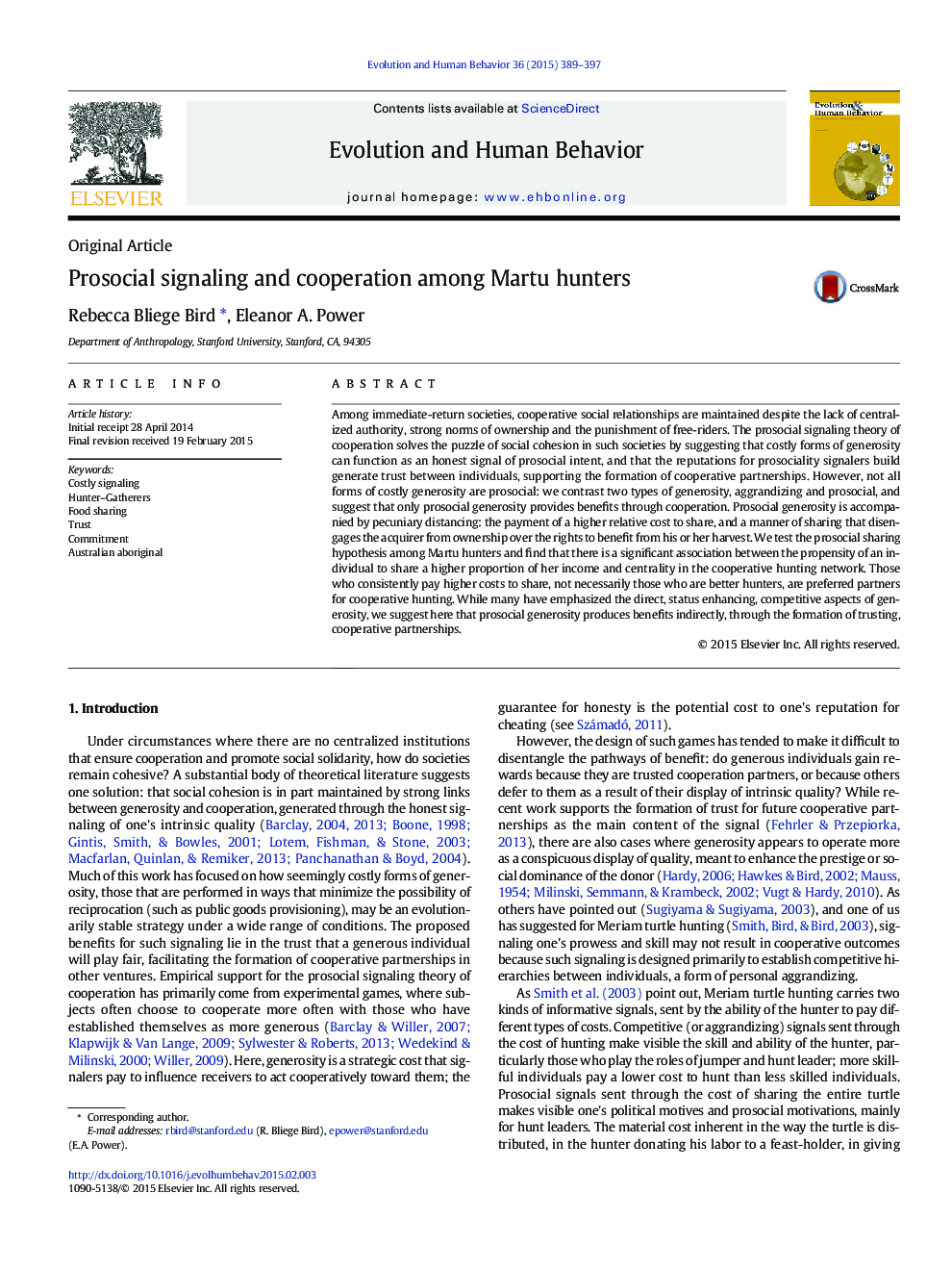| Article ID | Journal | Published Year | Pages | File Type |
|---|---|---|---|---|
| 943111 | Evolution and Human Behavior | 2015 | 9 Pages |
Among immediate-return societies, cooperative social relationships are maintained despite the lack of centralized authority, strong norms of ownership and the punishment of free-riders. The prosocial signaling theory of cooperation solves the puzzle of social cohesion in such societies by suggesting that costly forms of generosity can function as an honest signal of prosocial intent, and that the reputations for prosociality signalers build generate trust between individuals, supporting the formation of cooperative partnerships. However, not all forms of costly generosity are prosocial: we contrast two types of generosity, aggrandizing and prosocial, and suggest that only prosocial generosity provides benefits through cooperation. Prosocial generosity is accompanied by pecuniary distancing: the payment of a higher relative cost to share, and a manner of sharing that disengages the acquirer from ownership over the rights to benefit from his or her harvest. We test the prosocial sharing hypothesis among Martu hunters and find that there is a significant association between the propensity of an individual to share a higher proportion of her income and centrality in the cooperative hunting network. Those who consistently pay higher costs to share, not necessarily those who are better hunters, are preferred partners for cooperative hunting. While many have emphasized the direct, status enhancing, competitive aspects of generosity, we suggest here that prosocial generosity produces benefits indirectly, through the formation of trusting, cooperative partnerships.
